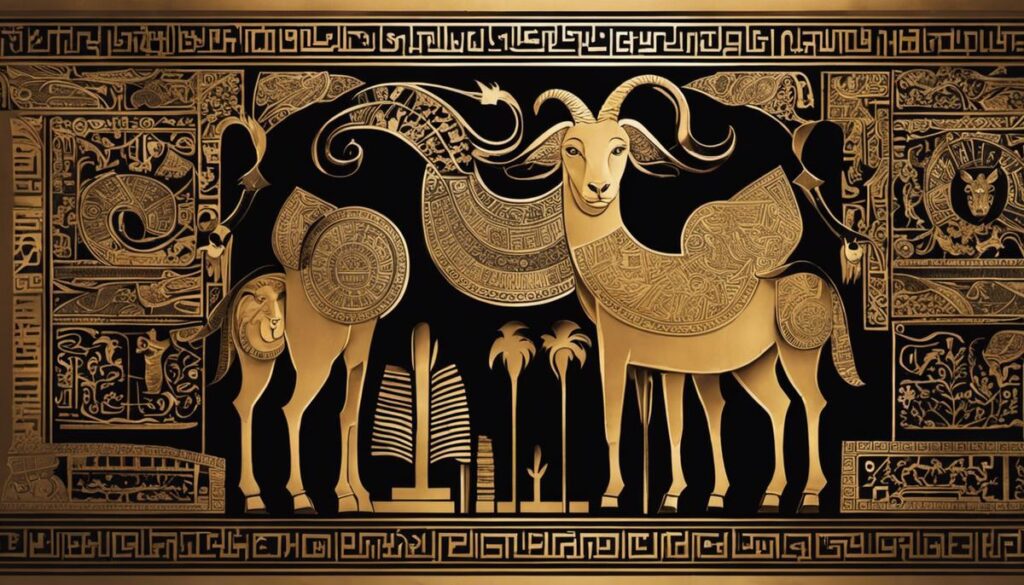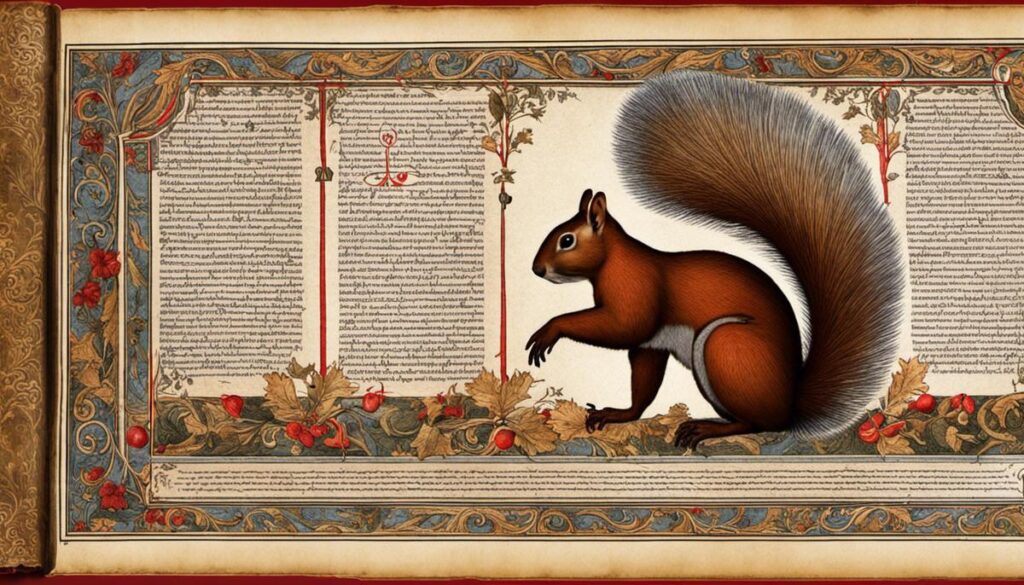Many cultures worldwide have long attributed significant symbolism to spiders, interpreting their presence in unique and often spiritual ways. However, in the realm of dreams, these symbolic interpretations acquire an even more profound dimension. Dreams have been given considerable weightage within the Christian belief system, with the Bible mentioning various instances where God communicates critical messages to his people through this medium. This discourse endeavours to dissect the complex web of symbolism around spiders as depicted in dreams from a biblical perspective. The focus lies in connecting the intricate threads from biblical interpretations, historical symbolism, through to its relevance in contemporary society.
The Biblical Perspective on Dreams
Dreams in Biblical Context: Perceptions and Interpretations
Dreams, an intriguing aspect of the human consciousness, have been a subject of intrigue across cultures and societies. Among the myriad interpretations of dreams, an instructive source derives from religious scriptures, particularly the Bible. Various narratives and teachings within the Bible offer a comprehensive perspective on dreams, framing this enigmatic phenomenon in a religious and spiritual context.
The genesis of Biblical dream interpretation rests upon the belief in Divine revelation. Intriguingly, dreams are often seen as a vehicle for God’s communication. This notion permeates many Old Testament narratives. God used dreams as a medium to bestow prophetic visions, warnings, and divine guidance—Joseph’s interpretations of dreams in Genesis (41:1-57) exemplify this.
In the Joseph narrative, dreams provide prophetic visions of the future. Joseph interprets both his dreams and those of others as divine messages, which undeniably alter the course of his life and significantly influence the trajectory of the Israelite people. This account underscores the Bible’s perception of dreams as vital conduits of prophecy.
Also, dreams serve as divine warnings. God imparts timely cautions through dreams, like the warning given to King Abimelech regarding Sarah, Abraham’s wife (Genesis 20:3-7), and the dream of the Egyptian Pharaoh that prompted Joseph’s interpretations (Genesis 41). In both instances, biblically-inspired dream interpretation prevented disastrous outcomes.
Moreover, the Bible also acknowledges dreams as a means of divine instruction or reassurance. Noteworthy is Jacob’s dream at Bethel (Genesis 28:10-22). Herein, Jacob experiences a dream-embedded encounter with God, culminating in divine reassurances and guidance about his role in God’s plan.
However, it is crucial to note the Bible’s evolved perspective on dreams in New Testament times. While the Old Testament presents dreams as prophetic revelations, the New Testament adopts a more cautionary approach. For instance, Ecclesiastes 5:7 cautions against granting too much importance to dreams. By the time we reach New Testament texts like Matthew (2:12-13), dreams retain their guiding role though they assume a minimized status compared to direct revelations like Jesus’s teachings.
Despite the nuanced interpretations, one symbol remains consistent – dreams are perceived, within the Biblical context, as meaningful rememberings of nighttime experience. This belief reinforces a rich tradition of dream interpretation deeply ingrained in the scripture, one that portrays dreams as spiritual markers — potentially conveying divine messages. By doing so, the Bible underlines the potential significance of dreams in unfolding divine intent and in guiding followers’ faith journeys.
However, within any academic or scientific discourse, it is essential to acknowledge that while the Bible offers a spiritual and religious perspective on dreams, incorporating psychological, neuroscientific, Cognitive and cultural perspectives can create a more holistic understanding of this elusive phenomenon.

Symbolism of Spiders in Various Cultures
“Spiders in Culture and Scriptures: A Tapestry of Symbolism”
Reflecting on the multifaceted world of symbols in different cultures, the ubiquitous spider has woven its tale in the fabric of diverse societies, scriptures, and biblical times alike. This eight-legged creature, its life, and its craft, the carefully spun web, have often been latent with meaning, embodying distinct symbolisms across civilizations.
The spider, an intricate part of folklore, narrative traditions, and biblical references, presents a striking example of cross-cultural symbolism. While it is perhaps more commonly associated with attributes such as fear and malice due to its predatory nature, the spectrum of symbolism it carries is as diverse as the species itself.
Turning the pages of the ancient civilizations of Africa, spiders were indeed revered. West African mythology personifies the spider as Anansi, the trickster god known for its wisdom, who even has a profound influence on the creation of the universe. The symbolism here is more positive, emphasizing wisdom, creation, and cunningness.
This transformative perspective changes contours when delving into Greco-Roman mythology. Here, the story of Arachne, a mortal woman punished and turned into a spider by Athena, the Goddess of wisdom and crafts, introduces a mix of complex representations. It signifies both hubris for Arachne’s arrogance against a deity and an endless plight of constant labor and craftsmanship.
The biblical representation of the spider presents its own unique narrative. Proverbs 30:28 in the Old Testament mentions, “The spider skillfully grasps with its hands, and it is in kings’ palaces.” This symbolizes wisdom, suggesting that not just the glamorous but even the humble and small can inhabit noble spaces through their wisdom and resourcefulness. Furthermore, the spider in biblical times is also a symbol of fragility and transience, where its delicate web serves as a metaphor for the human mortal life, vulnerable and temporary.
Interestingly, in Native American folklore, the spider holds a pivotal position as the Weaver of Life. Quite analogous to dream interpretation, it implies one’s ability to fashion their life’s web. So, the spider, in essence, represents creativity, wisdom, patience, and destiny.
Transitioning to the Eastern realm, the Japanese folk beliefs identify the spider as mysterious creatures influencing luck. An early morning spider is considered a symbol of good fortune, while an evening one is associated with misfortune.
The symbolism of spiders in diverse cultures, therefore, poses a fascinating narrative web spun across societies, biblical times, folklore, and mythology. Understanding this marries anthropology and cultural studies, entwining threads of shared human experience across different epochs. This interplay of the scientific, cultural, and psychological facets unravels a holistic perspective surmounting mere face value and enriches our understanding of this extraordinary creature.
Therefore, although the symbol of a spider might entangle phobia for some, it undeniably weaves intricate narratives of wisdom, creativity, and complex human emotions transcending geographical borders and timelines.

Biblical Interpretation of Spiders in Dreams
Having built a strong foundation in understanding dreams from both a biblical and psychological perspective along with exploring the multicultural symbolism of spiders, we can now turn our focus to the fascinating question at hand – what does the Bible insinuate concerning the interpretation of spiders appearing in dreams?
In the interpretation of dreams, one must keep in mind that the Bible does not tend to provide straightforward symbolism. Based on the understanding obtained from various scriptures, subtly and implicit suggestiveness are the most common modes of conveying meaning. Therefore, the appearance of spiders in dreams could be seen as a metaphorical construct open to analysis.
The most explicit reference to a spider in the Bible can be found in the book of Proverbs (30:28). The spider, referred to as something that dwells with kings in palaces, brings out a fascinating depiction of the creature. This reference suggests an implicit view of the spider as representing elements of determination, tenacity, ambition, and resourcefulness. Interpreting this within a dream context could suggest the ability to strive and succeed even in seemingly unfavorable conditions.
Simultaneously, in the biblical context, spiders also display a precarious existence that is constantly threatened by their environment – a potent symbol of fragility and vulnerability. Thus, when they appear in dreams, this might point towards feelings of insecurity or being threatened.
The juxtaposition of these two contrasting aspects presents a fascinatingly complex tapestry for interpretation. Just as dream analysis requires attention to individual nuances, the connotation of spiders in the dream should be contextual to the dreamer’s unique experience.
There is also a notable resemblance between the intricate complexity of a spider’s web and the labyrinthine nature of dreams themselves. These metaphorical webs of fate, destiny, or even deceit are woven within the threads of one’s mind during the dream state, with the spider coming forth as perhaps not the architect, but indeed the embodiment of such intricate bidings.
It is further critical to encompass a multidisciplinary and multi-layered approach for such analysis, acknowledging that the resulting interpretation is profoundly shaped by individual, cultural, and psychosocial factors. Additionally, an approach incorporating the cognitive dimensions connected to the human relationship with spiders – predominantly fear and fascination – would provide a richer understanding of such a perplexing dream symbol.
Therefore, when a spider scuttles onto the stage of our nocturnal imaginings, it demands a careful and comprehensive appraisal. One can infer that the embodiment of a spider in a dream, as per the insinuations in the Bible, can be suggestive of resourcefulness, vulnerability, complexity of circumstances or relationships, and the interplay of fear and fascination in one’s life. However, contextualization to the individual’s unique setting and experiences remain pivotal in providing a more personalized interpretation.

Case Studies: Spiders in The Biblical Dreams of Eminent Figures
While the interaction of dreams, spiders, and the biblical landscape altogether is not often studied, the unified examination of these elements can provide a fascinating glimpse into the intricate mosaic of spiritual, psychological and cultural symbolism. Although explicit mentions of spiders in biblical dreams are scarce, it’s the conceptual threads they spin in the broader biblical matrix that draw scholarly interest.
One could argue that spiders in the biblical narrative symbolize a transformative figure or entity involved in the construction of narratives. Using the spinner of webs as an example, the metaphor has a fitting parallel in the biblical propensity to unravel deep, complex truths through ostensibly simple narratives, much like a spider meticulously weaving its intriguing web.
Moreover, examining dreams featuring spiders demands looking beyond literal transcriptions and venturing into symbolic hermeneutics. Associating spiders with creativity, intricate work, and strategy, as is done across many cultures, we can view their appearance in dreams as emblematic figures weaving fateful threads in the loom of faith journeys.
The biblical landscape also echoes with the spider’s inconspicuous but noteworthy presence. The specific citation in the Book of Proverbs 30:28, where the spider skillfully grasps with its hands and is in kings’ palaces, serves as an apt metaphor for perseverance and success in unfavorable circumstances. This provides an interpretive lens to understand spiders in dreams – they might, in this light, represent endurance, creativity, and the triumph of seemingly inconspicuous individuals over daunting challenges.
The symbolic resonance is even more profound when considering the complexity and ambivalence humans exhibit towards these creatures. Spiders in dreams can be perceived either as indicators of fear and entanglement or as symbols of industriousness and intricate craftsmanship, reminiscent of the spectrum of human experiences and emotions in confronting divine revelations.
The labyrinthine nature of dreams, coupled with the intricate weavings of a spider web, offers an illuminating analogy. Dreams, much like spider webs, are complex and intricately woven tapestries of the subconscious. The study of spiders in dreams, therefore, might involve understanding intricate spiritual truths and epiphanies, much like untangling a complex web, necessitating an integrative approach spanning theology, psychology, and the cultural sciences.
The interplay of science, culture, psychology, and spirituality in interpreting the symbolism of spiders in dreams provides a profound pathway to comprehend the human psyche. Not only does it herald the complex tapestry of divine communication, but it also underscores the resilient human impulse to venture between the lines, and the webs, of observable reality to make sense of the ineffable.
It is essential to engage with each dream’s unique symbology and consider the myriad personal, cultural, cognitive, emotive, and spiritual variables at play. Delving into the manifestation of spiders in dreams within a biblical framework may elucidate the intricate dynamics of divine messaging, human cognition, and cultural symbolism, revealing a mesmerizing deeper layer of understanding at the intersection of science, culture, and faith.
In conclusion, this rich and multifarious study can potentially enlarge our capacity to decode the metaphoric language of dreams and, importantly, better understand our relationship with the Divine and the mysterious fabric of our subconscious.

Contemporary Applicability of Biblical Interpretations of Spiders in Dreams
Given the multifaceted nature of spiders and their appearances in dreams, understanding their symbolism in modern contexts necessitates exploration beyond the boundaries of traditional biblical interpretations. The rich fabric of symbolism associated with spiders, borrowing from cultural, psychological, and cognitive dimensions, can provide deeper insights into personal dream experiences.
Spiders, as with any dream symbols, may signal a variety of interpretations depending upon the personal, psychological, and cultural context of the dreamer. The spider, an emblematic figure of industry, creative ingenuity, and intricate craftsmanship, can represent themes of diligence, dedication, and patience. However, it is essential to appreciate that the symbolic language of dreams containing spiders is site-specific, layered, and dichotomous, encapsulating polar aspects like creation and destruction, fear and fascination.
As spiders in dreams weave their intricate webs, there are parallels within the complex and labyrinthine nature of people’s subconscious narratives. Spider webs in dreams, much like a tapestry, may symbolize one’s interconnectedness and relationships. Analogously, these webs may embody an individual’s intrapsychic dialogues and relate to the complex structure of human cognition and emotion.
Contemporary scholarship about biblical interpretations of spiders often touches upon the rich imagery of the spider in the book of Proverbs. The symbolic value of the spider, highly regarded for her industriousness, resonates in the modern context with those who identify with traits of determination and resilience.
The spider’s paradoxical nature, representing both our fears and ambitions, makes it a cryptic and fascinating element in dreams. The cognitive interplay between these emotions mostly defines our spider-associated dream analysis, offering enriching insights into our emotions, responses, and adaptability.
The comparison of the spider to divine wisdom and craftsmanship also sets the frame for us to interpret dreams as instrumental in driving personal evolutions. The web as a metaphor for destiny or divine plan may unravel synchronicities or seemingly unrelated events that help us discern the divine’s complex, intricate providence.
Keeping with the initial premise, the interpretation of spiders in dreams, while grounded in biblical perspectives, needs to resonate holistically with modern understanding—taking into account the science of dreams, psychological theories, personal narratives, and cultural significance. Thus, weaving a tapestry that represents the rich, symbiotic interplay between dreams and our conscious experiences, shedding light on the profound narratives of our subconscious, divine interaction, and personal evolution.
Finally, we come to the realization that although biblical interpretations provide pioneering insights into the symbolism of spiders in dreams, its appreciation in the modern context emphasizes the necessity of incorporating a multidisciplinary approach. Incorporating a variety of perspectives creates a comprehensive understanding that respects individual variances and the complex nature of dreams itself.
Decoding the language of dreams continues to be an exciting exploration. By stepping beyond literal biblical interpretations towards nuanced, holistic interpretations, we can appreciate the wisdom of symbols like spiders and the inherent potential they hold in unraveling the subtleties of our subconscious dialogues and spiritual revelations.

Upon reviewing the biblical meaning of spiders in dreams, it surfaces that these creatures, often perceived with fear or disdain, carry profound spiritual messages. Their presence in dreams has been interpreted by scriptural scholars and biblical figures alike, shaping our understanding of their symbolism, and consequently, their influence on society over centuries. The journey from biblical times to the present day reveals an evolving perspective on spiders’ symbolism in dreams, demonstrating its enduring relevance despite different societal dynamics. Therefore, it becomes evident that continuing to study and interpret these dream symbols enriches our understanding of our spiritual life, helping us navigate our path in the world.







